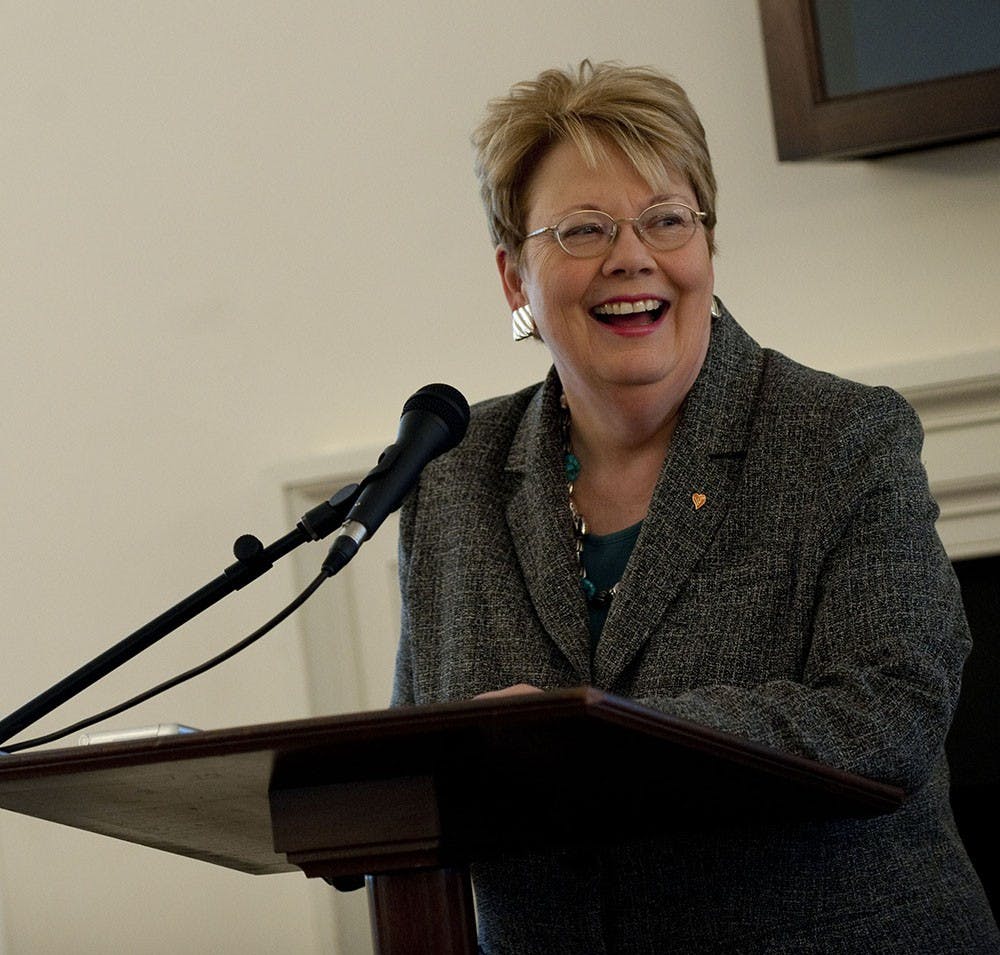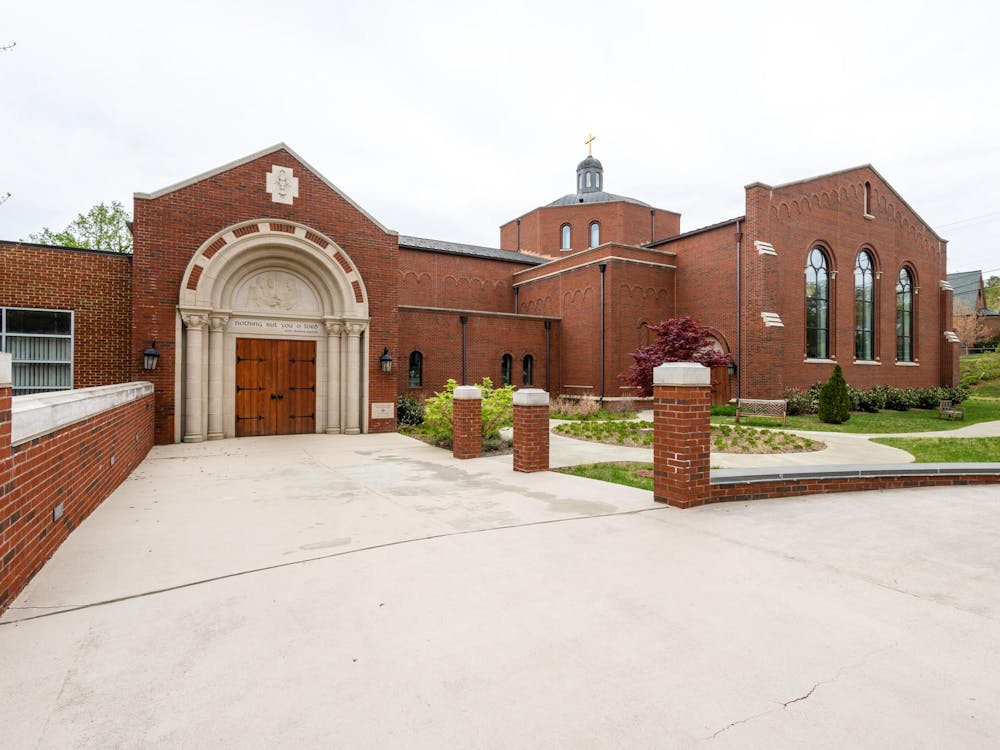The University has commenced an internal evaluation of University President Teresa Sullivan to determine whether to extend her current contract. Sullivan’s contract is set to expire July 31, 2016.
Board of Visitors Rector George Keith Martin said that while the consideration of Sullivan’s contract is now in a formal evaluation stage, this is only part of a more general, constant reassessment of her tenure.
“Consistent with good board governance, the evaluation of the University president is a continuous, ongoing process,” Martin said in an email. “We are currently in the midst of the formal evaluation period.
Sullivan, who took office in 2010 as the University’s eighth president, said the work and projects she has spearheaded are part of an ongoing process, and that she would like to continue working with the University community on important University opportunities.
“I look forward to continuing to work with the Board of Visitors, students, faculty, staff, parents, alumni and supporters on the many important opportunities ahead for this great institution,” Sullivan said in an email. “My goal as president has been and will continue to be working to ensure that the University of Virginia remains one of the nation’s finest institutions of higher education, and striving not only to maintain but to enhance its excellence in teaching, research, patient care and public service.”
Student referendums on Sullivan’s tenure have by and large been a mixed bag.
Second-year College student Jackson Nell said he believes Sullivan has done her best in response to each of the challenges the University community has faced — from devoting top University resources to the search for second-year College student Hannah Graham to supporting the student body through the Rolling Stone crisis.
“I think she catalyzed a much deserved conversation about the University’s culture and the need to actively combat domestic and sexual violence,” Nell said. “I believe that her efforts to be actively present in our community through her emails and her working groups have fostered greater University attention to issues of domestic and sexual violence as well as issues regarding U.Va.’s often troubling past regarding gender, socioeconomic and racial equality.”
While the University community has faced its fair share of traumatic and unsettling challenges over the last five years, Nell said he would not expect Sullivan to face any significant challenges in extending her contract.
“I think she has brought a ton of energy, increased transparency and greater administration-student dialogue to Grounds throughout her time here,” he said. “I hope that she is able to continue her efforts to make U.Va. the premier public university in this nation.”
Other students, however, feel Sullivan has not done an adequate job serving the University.
First-year College student Aethena Brooks said she does not believe Sullivan should return to the University after her contract ends.
“I think in light of recent events, the way she’s handled the things that have happened… I just don’t think she’s handled them well,” Brooks said. “I don’t feel that she’s a student advocate who supports the community.”
Parker Ramsay, a fourth-year College student, said cuts to the AccessUVa program are an important legacy of Sullivan’s tenure.
“[Sullivan] has done a marvelous job causing an uproar,” Ramsay said. “I think if she wants to keep her job, she needs to fight for AccessUVa. She needs to put a lot of work into that program, because that is flying so low under the radar.”
Ramsay also criticized Sullivan’s administration for infringing upon student self-governance and lacking transparency.
“There are certain things that get determined without student knowledge,” he said. “Transparency with the administration, why we need so much administration staff — there are a lot of things we need to work on. It’s the decisions that are being made without student knowledge that I have a problem with — especially ones that affect students so strongly.”
Board of Visitors student representative Meg Gould, a fourth-year College student, said she has developed a good working relationship with Sullivan during her time on the board, and that Sullivan has been responsive to student concern.
“I think that she has done her best to make sure that all voices have been included in the conversation so that she is making very deliberate and comprehensive decisions,” Gould said.
“Especially seeing what she’s done with the Ad Hoc group, and more particularly the working groups. I think she has done an excellent job in making sure that she is really reaching out to everyone — and that is more broadly than students [but includes] alumni, faculty and staff as well.”
Because of her status as a student representative to the Board of Visitors and her involvement in the Board’s review of Sullivan’s performance, Gould could not reveal whether she supports the renewal of Sullivan’s contract.
Second-year College Student Zachary Ackerman said the way the University continues to handle the sexual assault allegations made in the Rolling Stone article will shape his opinion on the effectiveness of the administration.
“Being here for two years hasn’t given me the strongest opinion either way,” Ackerman said. “I feel that as students we don’t often see what the president does until moments like [the release of the Rolling Stones article]. I think someone should look into what happened regarding the article and the claims made in them.”
Martin said he hopes to conclude the evaluation process no later than June 30, 2015.
— Chloe Heskett contributed reporting to this article.







